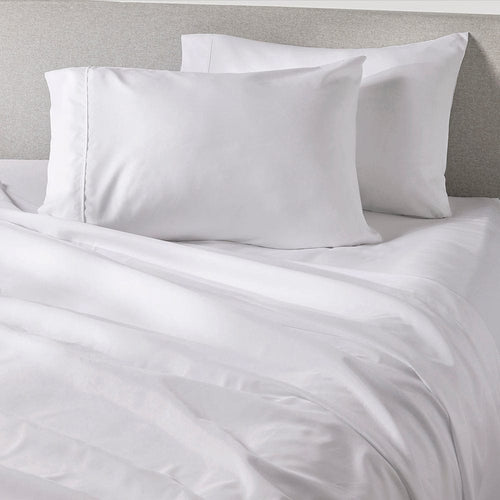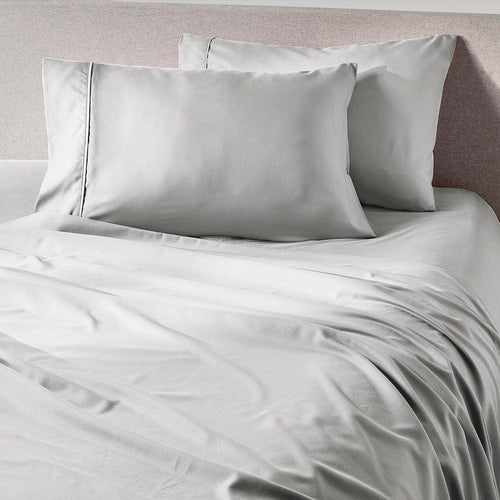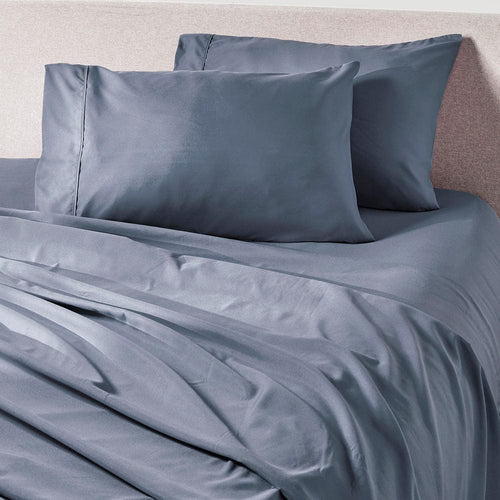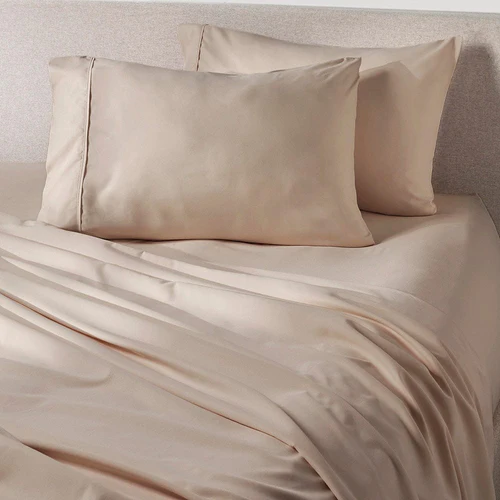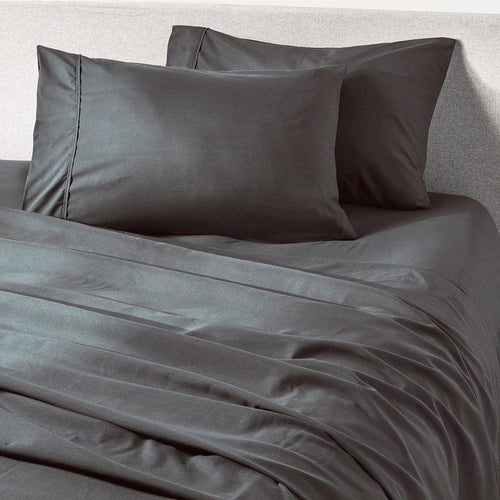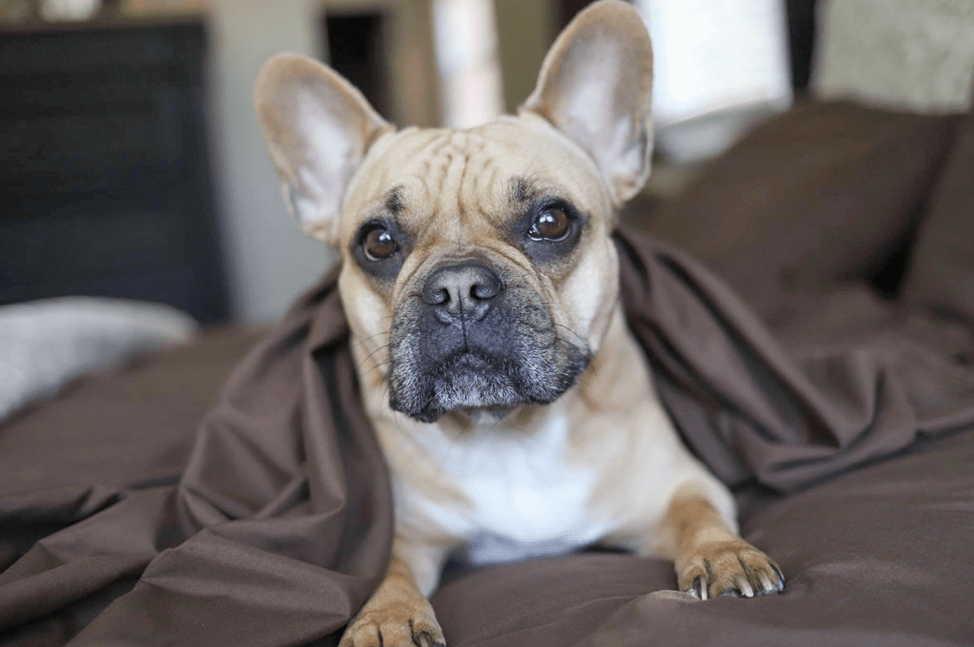
Night Sweats Causes: Four Possibilities
Night sweats are incredibly uncomfortable, but they can also cause problems aside from wet sheets and grumpy partners. They can cause you to lose out on precious sleep, which can lead to a lack of focus and concentration during the day. Not to mention, you'll probably find yourself doing a lot more laundry than you used to before you had night sweats. As you can see, the domino effect of this nighttime condition goes far beyond simple discomfort.
With that in mind, let's explore the causes of this situation – night sweats and drenched sheets don’t have to be the norm. Cool sheets do exist.
Do All Women Going Through Menopause Suffer from Night Sweats?
No. Some women are lucky enough to avoid this uncomfortable situation, but if you are experiencing menopausal night sweats, you're certainly not alone. Around 85% of women experience hot flashes during menopause, with somewhere around 55% of women experiencing this uncomfortable situation before the onset of other menopause-related symptoms.
How Long Do Menopausal Hot Flashes Last?
Unfortunately, menopausal hot flashes seldom go away without a fight. By some estimates, the average duration of hot flashes is about 5.2 years, with some women reporting the condition for seven years or longer. Around 25% of women experience hot flashes for more than half a decade.
In other words, solving this problem could be difficult – but treating the symptoms doesn’t have to be. By choosing no-sweat sheets, you can sleep comfortably while you wait out this otherwise uncomfortable condition.
Can Medication Cause Night Sweats?
Absolutely! Different medications have unique effects on individuals' bodies. If you've found yourself waking up in sheets drenched in night sweats after a recent change or increase in medication, that very well could be the cause. In particular, certain antidepressant medications have been shown to cause night sweats. Somewhere between 8% and 22% of antidepressant-taking patients report experiencing night sweats. Other psychiatric drugs have also been shown to cause night sweats.
Mental health medications aren't the only medicines that can cause night sweats, however. Even over-the-counter meds like aspirin and acetaminophen can lead to soaked sheets when you wake up in the morning, depending on your condition and body's response to the medication.
Which Hormone Disorders Can Cause Night Sweats?
Menopause is the ultimate hormone displacement for many women, but it's not the only thing that can cause night sweats. The following hormone disorders can also contribute to uncomfortable sleep patterns and night sweats:
- Pheochromocytoma
- Carcinoid syndrome
- Hyperthyroidism
Of course, this list isn't exhaustive. If you're concerned that you might have a hormone disorder, it's best to speak with your doctor as soon as possible. Blood tests and other medical analyses can help your doctor deduce what's causing your night sweats so you can feel more comfortable, drier and cooler while you're sleeping.
Can Night Sweats Be An Indication of a Serious Illness?
The short answer is yes, but it's important to consult your physician before worrying or jumping to conclusions. Lymphoma and leukemia commonly cause night sweats, as do tumors that grow on the adrenal glands. Some cancer treatments can also cause night sweats, such as certain types of hormone therapy, which is often used to treat breast, gynecologic, and prostate cancers.
What Causes Night Sweats?
The short answer is: It depends. As mentioned above, certain medicines and medical conditions can cause night sweats. For some people who are naturally hot sleepers, they might be prone to sweat without any underlying condition causing the situation. If you're sleeping in bedding that's too hot or made from materials that aren't ideal for the perfect sleeping scenario, you might be inviting your body to overheat without realizing it. In these situations, you could actually dehydrate your body while you sweat excessively overnight. This is why it's important to invest in the proper bedding that not only feels good, but is good for your body, too.
Night sweats occur when the body's natural thermostat hits a peak high. At that point, the brain triggers the body to go into cool-down mode, which means you're sweating because sweat is the body's natural air conditioner. Often, the blood vessels become enlarged as they try to let blood flow at a higher rate. This, in turn, causes the heart to speed up and signals the body to go into a sort of recovery mode to make sure all of the organs can continue to function as normal. Of course, since this is all happening while you're sleeping, you probably won't realize it's going on until you wake up in a pool of your own sweat.
To combat this situation, consider employing the following tactics:
- Use night sweat sheets that are designed to wick moisture away, rather than absorbing it and soaking it further into your sheets and mattress;
- Maintain a healthy weight, as obesity has been shown to cause overheating during sleep, possibly because the heart has to work harder to deliver blood throughout the body;
- Take a cool shower before bed to get your body's natural temperature down to a maintainable, healthy level;
- Eat healthy to avoid things that can trigger night sweats, such as spicy food, caffeine, or excessive amounts of alcohol;
- Meditate to bring your stress levels down to a more manageable level before your head hits the pillow;
- Use a fan that's directed at your own body. Even if you have a sleeping partner, you can both sleep comfortably if the fan is only blowing on you;
- Talk to your doctor. It's important to get to the underlying causes of night sweats as soon as possible. The quicker you understand why they're happening, the sooner you'll be able to sleep more comfortably.
At PeachSkinSheets, we're proud to produce sheets that'll wrap your body in cooling, calming comfort. To experience the difference of our SMART Fabric for yourself without any obligations, order a free swatch today!

